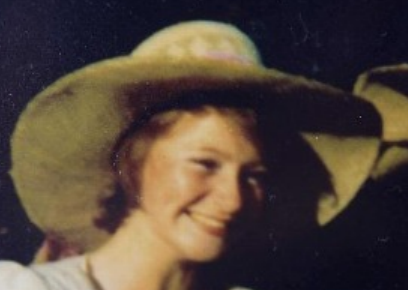Birmingham pub bomb families refused Hillsborough-style funding
 The Government has refused relatives of the Birmingham pub bombing victims Hillsborough-style funding to cover legal fees for the inquest.
The Government has refused relatives of the Birmingham pub bombing victims Hillsborough-style funding to cover legal fees for the inquest.
The families of nine of the 21 victims who died in the 1974 attack had hoped to secure an arrangement mirroring the Hillsborough inquests, where costs incurred were met by the Government. However, they were left ‘frustrated and disappointed’ after their request, which was backed by both Conservative and Labour MP’s in the Midlands, was rejected by Home Secretary Amber Rudd in a personal phone call earlier this week.
Many of the relatives regard the reopening of the inquests as ‘the last opportunity’ they will get to have ‘an independent investigation into the murder of (their) loved ones’.
On the night of the 21st November 1974, bombs exploded in both the Mulberry Bush Pub and the Tavern in the Town in Birmingham city centre, killing 21 people and injuring 222. While the attack, which was the worst terrorist atrocity on English soil at the time, was widely attributed to the IRA, the so-called Birmingham Six originally convicted of involvement in the bombing walked free 25 years ago having had their convictions overturned and no-one else has been charged with the terrorist atrocity.
As reported here on the Justice Gap, Paddy Hill of the Birmingham Six has been working with the families. Hill, in an interview given to the Justice Gap on the 25th anniversary of the release of the Birmingham Six earlier this year, said: ‘We are getting a bit closer to finding out the truth,’ he said.
Inquests into the deaths of the 21 victims were originally opened shortly after the bombings, but were adjourned to allow for criminal investigations which led to conviction of the six men. However, even when their convictions were quashed in 1991, the inquests were not re-opened.
The application to reopen the hearings follows a campaign by the families through the ‘Justice 4 the 21’ group which was set up by relatives of the victims. Julie Hambleton, who was 11 at the time of the bombings and whose 18-year-old sister Maxine was killed, said: ‘All we want is one thing- justice. No more, no less. We don’t want money, we don’t want an apology. All we want is justice.’
In an open letter on 5th September, she wrote:
‘We have had no support in this for over 40 years – to date all investment to get us to this point has been by ourselves alone – in this room with you (the Home Secretary), in getting a decision from the Senior Coroner, in meeting your predecessor – has been under our own volition and with the support of our legal team. A Senior Coroner has decided there is new evidence, sufficient cause and reason, and powers to undertake a resumption of the investigation. We are aware of what this investigation can provide to us and its limitations.’
Public funding is generally not available for representation at inquests as, in the words of the Legal Aid Agency (LAA), the process ‘is a relatively informal inquisitorial process, rather than an adversarial one’. In exceptional cases, the Lord Chancellor has the power to provide funding on an individual basis, if the applicant can show financial need (although this requirement can be waived at the discretion of the Legal Services Commission), and that there is either a significant wider public interest in the applicant being legally represented at the inquest or that funded representation for the relatives is necessary to allow the coroner to carry out a comprehensive investigation into the death as required by Article 2 of the European Convention on Human Rights. Non-means tested funding was granted to the families of victims of the Hillsborough Disaster by the Home Office and other government departments for representation at the inquests into the deaths of their family members.
This refusal by the Home Secretary to grant the request for legal support goes against recommendations made by the Chief Coroner Peter Thornton QC earlier this year, who emphasised that legal aid should be provided for families at inquests in which the government pays for lawyers to represent the police or other state employees.
He told the Guardian in July that this is ‘a question of equality of arms’ and recommended in his annual report that the lord chancellor should consider amending the exceptional funding regime.
While the request for the payment of legal fees has been refused, a spokesman confirmed that Rudd was ‘sympathetic’ and has pledged her support for an application by the families to the LAA. The families of the victims have responded by calling for the confirmation of legal aid ‘by the end of the week’. ‘Time is really imperative in order for our legal team to have sufficient preparation, and we are rapidly approaching a pre-inquest review date which has been ordered by the Coroner. Every day is vital,’ said Hambleton. ‘The police have £1 million funding secured from taxpayers’ money and have already had several weeks more than us in order to start their preparations.’
MP for Birmingham Yardley Jess Phillips stated in a letter to the Secretary of State for Justice that she was disappointed with the decision. Expressing support for the decision of the previous Home Secretary, Theresa May, in granting financial aid to the relatives of victims of the Hillsborough disaster, she reminded the minister that memories of the bombings ‘remain with people in our city’. ‘The people of Birmingham feel strongly that justice will not be done if the families of the victims are disadvantaged in future legal proceedings,’ she said.






